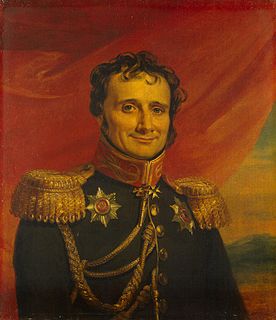A Quote by Joseph Beuys
The ego must be developed, not for its own sake, but because it is needed by society. If you are only interested in self-realization then you cannot make a good painting. To do this you have to have thought about forming, and about how ideas of forming stem from history.
Related Quotes
Then ego goes on growing, because the society needs you as an ego, not as a Self. The Self is irrelevant for the society; your periphery is meaningful. And there are many problems. The ego can be taught and the ego can be made docile and the ego can be forced to be obedient. The ego can be made to adjust, but not the Self. The Self cannot be taught, the Self cannot be forced. The Self is intrinsically rebellious, individual. It cannot be made a part of society.
The mind of man can never be wholly barren. Through our whole lives we are subject to successive impressions; for, either new ideas are continually flowing in, or traces of the old ones are marked deeper. If, therefore, you be not acquiring good principles be assured that you are acquiring bad ones; if you be not forming virtuous habits you are, how insensibly soever to yourselves, forming vicious ones.
If you spend five minutes with your worst enemy - it doesn't have to be about race, it could be about anything... you will find that you both have something in common. As you build upon those commonalities, you're forming a relationship and as you build about that relationship, you're forming a friendship.
That's why we cannot love, because with the ego, love is impossible. That's why we go on talking so much about love, but we never are in love. And whatsoever we call love is more or less sex, it is not love; because you cannot lose your ego, and love cannot exist unless the ego has disappeared. Love, meditation, godliness, they all require one thing - the ego must not be there. That's why Jesus is right in saying that God is love, because both phenomena happen only when the ego is not.
There is no evolutionary pressure to create minds capable of forming sciences; it just happened. Evolutionary pressure has not led to higher rates of reproduction for people capable of solving scientific problems or creating new scientific ideas. So if, in fact, the science-forming capacities evolved for other reasons, it would not be too surprising if those particular structures that have developed proved to be rather special in their nature, reflecting the contingencies of their evolution or the working of physical law.
As in forming a political society, each individual contributes some of his rights, in order that he may, from a common stock of rights, derive greater benefits, than he could from merely his own; so, in forming a confederation, each political society should contribute such a share of their rights, as will, from a common stock of these rights, produce the largest quantity of benefits for them.
If you think about it, just the psychology of the superhero is, 'Because I can, I should protect people, and I should put bad guys away, and I should defend society.' But you're forming your own justice. There's no judge and jury here: you are it. That, in and of itself, is a very complicated way of looking at morality.
The great work of the present for every man, and every organization of men, who would improve social conditions, is the work of education the propagation of ideas. It is only as it aids this that anything else can avail. And in this work every one who can think may aid first by forming clear ideas himself, and then by endeavoring to arouse the thought of those with whom he comes in contact.
There is this thing called the university, and everybody goes there now. And there are these things called teachers who make students read this book with good ideas or that book with good ideas until that's where we get our ideas. We don't think them; we read them in books. I like Utopian talk, speculation about what our planet should be, anger about what our planet is. I think writers are the most important members of society, not just potentially but actually. Good writers must have and stand by their own ideas.
We cannot create blueprint for future society, but it is good to think about that. It is good to have in mind a goal. It is constructive, it is helpful, it is healthy, to think about what future society might be like, because then it guides you somewhat what you are doing today, but only so long as this discussions about future society don't become obstacles to working towards this future society. Otherwise you can spend discussing this utopian possibility versus that utopian possibility, and in the mean time you are not acting in a way that would bring you closer to that.







































